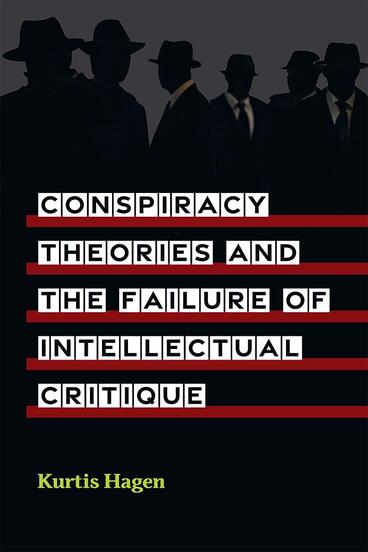Conspiracy Theories and the Failure of Intellectual Critique
Bias skews results
Description
Conspiracy Theories and the Failure of Intellectual Critique argues that conspiracy theories, including those that conflict with official accounts and suggest that prominent people in Western democracies have engaged in appalling behavior, should be taken seriously and judged on their merits and problems on a case-by-case basis. It builds on the philosophical work on this topic that has developed over the past quarter century, challenging some of it, but affirming the emerging consensus: each conspiracy theory ought to be judged on its particular merits and faults.
The philosophical consensus contrasts starkly with what one finds in the social science literature. Kurtis Hagen argues that significant aspects of that literature, especially the psychological study of conspiracy theorists, has turned out to be flawed and misleading. Those flaws are not randomly directed; rather, they consistently serve to disparage conspiracy theorists unfairly. This suggests that there may be a bias against conspiracy theorists in the academy, skewing “scientific” results. Conspiracy Theories and the Failure of Intellectual Critique argues that social scientists who study conspiracy theories and/or conspiracy theorists would do well to better absorb the implications of the philosophical literature.
Kurtis Hagen is an independent scholar and former Associate Professor of Philosophy at SUNY Plattsburgh.
Reviews
“Hagen has made an important contribution to philosophy. He will change the way you think about conspiracy theories.”
—David Coady, University of Tasmania
- David Coady
“Hagen undercuts the view that sophisticated thinkers avoid conspiracy theories and that taking them seriously indicates a cognitive problem. Combining philosophical rigour with political alertness, he shows how assessing hypotheses about powerful people conspiring is rational and prudent, whereas indiscriminately disparaging conspiracy theories risks stifling critical reasoning and pathologizing dissent.”
—Tim Hayward, University of Edinburgh
- Tim Hayward
“This is a brilliant and sophisticated work in the philosophy of conspiracy theory and puts the rest of us to the question by its thesis that any reflexive dismissal of conspiracy theories is both unwarranted and ethically troubling. One needn’t agree with its author in all particulars to assert that we who write in the area have a very great deal to learn from Conspiracy Theories and the Failure of Intellectual Critique.”
—Chris Fleming, Western Sydney University
- Chris Fleming
“Kurtis Hagen’s timely volume shows there are assumptions at the heart of much of the social scientific study of conspiracy theories, assumptions which philosophers have questioned for decades. Hagen’s book is a valuable resource to anyone interested in working out what, if anything, is wrong with these things called ‘conspiracy theories.’”
- M R. X. Dentith
—M R. X. Dentith, Associate Professor at Beijing Normal University at Zhuhai
“The systematic structure of analysis and critique here are quite exceptional. The care taken and respect given for even the most fallacious and specious argumentation commends the author’s empathy for the subject matter and its relevance.”
- Matthew T. Witt
—Matthew T. Witt, University of La Verne
“Hagen presents an especially compelling set of responses to the core questions around the study of conspiracy theory, and insightful critiques of the existing literature. Any reader in the social sciences and humanities will find his book of interest, and it is sure to generate lively debate.”
- Martin Orr
—Martin Orr, Boise State University

